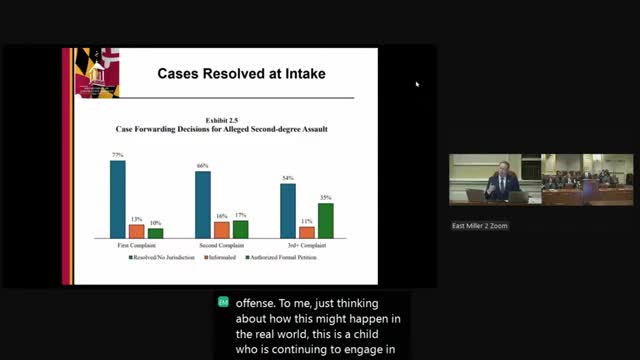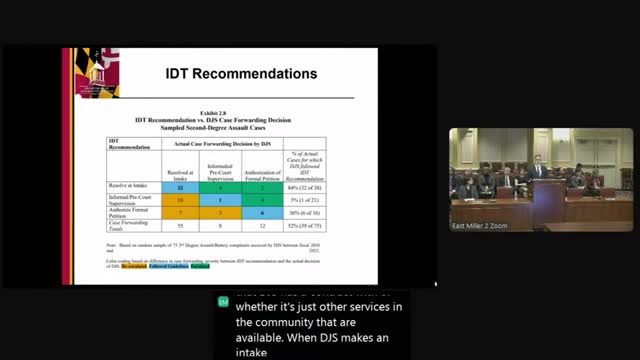Article not found
This article is no longer available. But don't worry—we've gathered other articles that discuss the same topic.

OPEGA briefing finds gaps in Department of Juvenile Services' community services, data and oversight

Committee presses DJS on staff safety, monitoring and facility operations amid reports of assaults

Audit finds data gaps; committee presses DJS on recidivism, intake tool and case management

